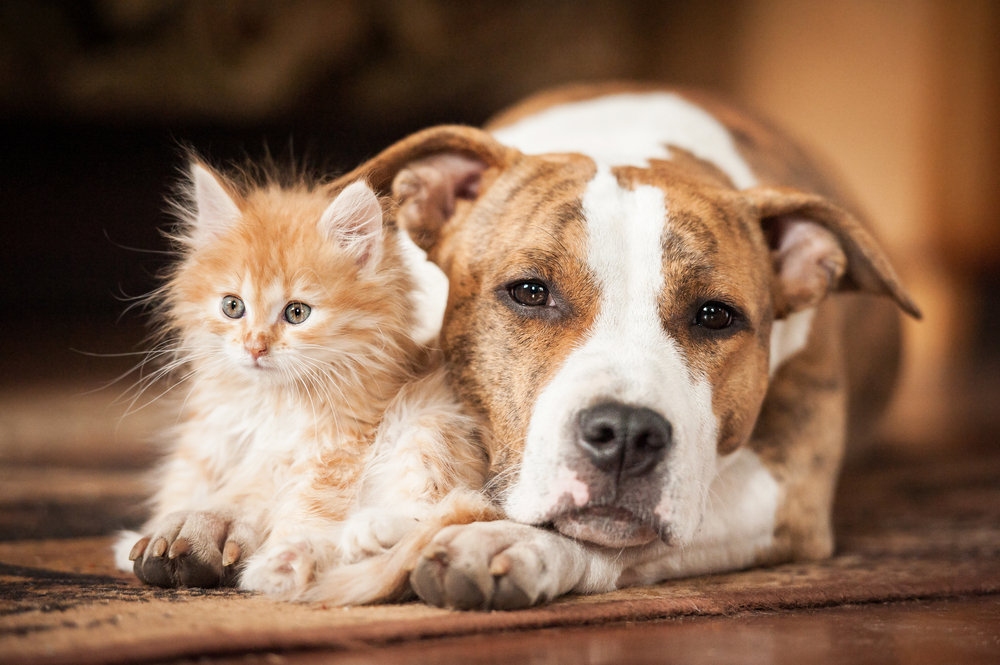Pets bring people joy in many different ways. Some people want a pet to care for and observe, others want protection, and some want a pet who can be an exercise buddy, snuggle pal, or devoted companion. Deciding that you want a new pet is easy, but choosing a species or breed that fits well into your lifestyle can be more challenging. Our Shuler Veterinary Hospital team shares the questions you should ask to help narrow your decision.
#1: Why do I want a pet?
Your reason for getting a pet plays a major role in the type you choose. People often bring pets into their homes for one or more of the following reasons:
- Companionship
- Stress relief
- Social support
- Exercise
- Hobby keeping
- Teaching children responsibility
- Protection
Ask yourself why you are seeking a new pet, and consider your responses as the starting point to determine the type that fulfills your needs. If you want a dog or cat, you must consider the breed or individual traits you want them to have. Always research a potential pet’s species so you know exactly what you’re getting into.
#2: How much can I spend on a pet?
Pets are expensive. If you have little extra income to spend on a pet, a dog or cat may not be the best choice, because they can cost thousands of dollars per year, in addition to their purchase price and other initial costs. Small mammals can make friendly and trainable companions who do not require the same veterinary care as pets who live 10 years or longer. Consider expected life span when calculating pet care costs. A pet species that usually lives only two to three years will be more affordable than a species that lives 12 to 15 years. Also, consider that larger pets cost more to feed, which adds up in the long run.
#3: How much time can I devote to my pet’s care?
Pets can be a lot of work, and many people underestimate the time they must devote to their animal companion to provide them with optimal care. Dogs tend to need the most time because they need lots of social interactions, training, brain stimulation, and physical activity each day. Cats are a close second but tend to be more independent and don’t require outdoor exercise. If you cannot devote more than a few minutes each day to a pet’s care, choose one that requires fewer social or interaction needs.
#4: Will my current or future living situation allow for pets?
Large pets take up more space than small ones. You should also consider a pet’s necessary enclosure size. Do you have enough space to accommodate a large, active dog, or a room to dedicate to a fish tank or reptile terrarium? Cats, small dogs, and small mammals are well-suited to small spaces, but you must also consider the amount of noise your potential pet might make, and your current dwelling’s rules regarding pets. If your neighbors will be able to hear a dog bark, avoid bringing home a noisy hound breed. Some apartment complexes and condominium buildings do not allow certain dog breeds. In addition, keep in mind that finding housing in the future may be difficult, depending on the type of pet you own.
#5: How will a new pet fit in with existing family members?
How will your existing family dynamic change when you bring home a new pet? Do you have small children, older children, young pets, or senior pets? Is your home relatively quiet or brimming with activity? Do your existing pets enjoy interacting with others, or will bringing a new furry pal into the home only stress them out? If you have a dog or a cat and plan to adopt a pocket pet, ensure you keep the new pet safe from predation. Always introduce new pets and existing household members gradually and supervise interactions.
#6: What was your potential pet’s previous living situation?
Your pet’s previous living situation is important. Shelters and rescues are excellent resources for choosing a pet type because they match you with an animal companion who meets your activity level and lifestyle expectations. If you work with a breeder, ask to meet the parents and tour the premises where the puppies are raised. By becoming familiar with your new pet’s previous living situation, you learn lots of helpful information. If a breeder refuses to show you around, consider what they might be hiding behind the scenes.
Caring for pets is a privilege and a responsibility. No matter the pet species you choose, you will need to care for your animal companion throughout their lifetime. The right pet for you is one to whom you can devote the necessary time and attention, a pet who will enjoy the same activities as you and your family. For all your pet’s veterinary care needs, call or book online with our Shuler Veterinary Hospital team. Visit our sister hospital websites at Animal Hospitals of the Lowcountry, Safe Harbor Animal Hospital, or Mount Pleasant Animal Hospital.









Leave A Comment